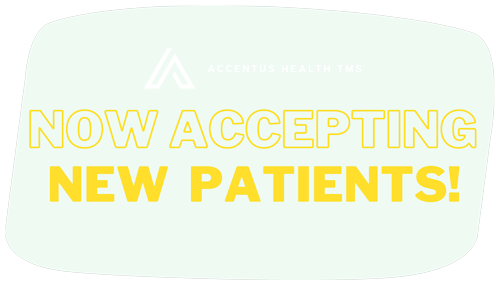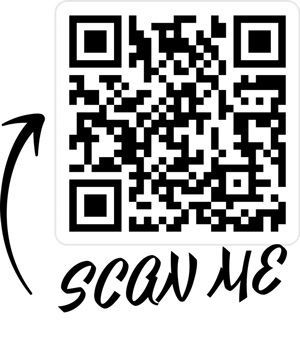Looking for Relief from OCD? TMS Therapy May Be the Answer
Do you or someone you love suffer from obsessive-compulsive disorder (OCD) and live in the Indianapolis area? If so, there may be a solution to reduce or eliminate your symptoms: Transcranial Magnetic Stimulation (TMS).
Accentus Health offers Apollo TMS therapy in Indianapolis to help those suffering from OCD find relief. In this blog post, we'll discuss why TMS may be the answer for those seeking relief from their symptoms.
Understanding Obsessive-Compulsive Disorder
Obsessive-compulsive disorder (OCD) is a mental health condition characterized by recurrent and persistent intrusive thoughts, impulses, or images that lead to anxiety and distress, as well as behaviors and rituals used to reduce this anxiety.
People with OCD often have difficulty distinguishing between what is real and what is imagined, resulting in repetitive behaviors and excessive worry. Symptoms can range from mild to severe and disrupt daily functioning, making working, going to school, or maintaining relationships difficult.
While there is no known cure for OCD, treatments, such as TMS therapy, can effectively manage symptoms. With therapy, individuals can gain insight into their condition and learn coping skills to manage their symptoms.
WHAT ARE OCD Signs & Symptoms

Signs and symptoms of OCD can be categorized into two areas: obsession symptoms and compulsion symptoms.
Obsessions are persistent, unwanted, intrusive urges, thoughts, or images that cause severe distress. The Mayo Clinic describes obsession symptoms as theme-based, such as:
· Having an excessive need for order or symmetry
· Fearing dirt or other contaminants
· Experiencing distressing thoughts about losing control or causing harm
· Having unwanted aggressive or sexual thoughts
These symptoms may manifest in obsessive behaviors like:
· Avoiding touching particular objects to avoid contamination
· Severe stress when things are out of order in some way
· Unpleasant sexual or aggressive images
· Persistent doubts that you locked the car door or turned off the oven
Compulsions are repetitive behaviors, typically in the form of rules or rituals, that a person feels driven to perform to prevent something terrible from occurring or to reduce anxiety related to an obsession. The compulsions don't bring relief from stress and are not realistic solutions to the source of anxiety.
Like obsessions, compulsions commonly have themes too:
· Counting, checking, and maintaining orderliness
· Following strict routines
· Constant cleaning and washing
Signs and symptoms of these compulsions could include:
· Checking doors over and over to ensure they're locked
· Counting things in particular patterns
· Arranging households items to face the same way
· Washing your hands until they're cracked and raw
People with OCD often find it challenging to perform their daily tasks, maintain healthy relationships, or succeed in their careers due to the severity of these obsessions and compulsions.
The Benefits of TMS for OCD
The FDA approved TMS for OCD in 2018 after reviewing rigorous research results. One research study shows 45% of patients experienced reduced symptoms after one month of TMS therapy.
In the 2018 press release announcing FDA approval, Carlos Peña, Ph.D., M.S., director of the Division of Neurological and Physical Medicine Devices in the FDA's Center for Devices and Radiological Health, said, "Transcranial magnetic stimulation has shown its potential to help patients suffering from depression and headaches. With today's marketing authorization, patients with OCD who have not responded to traditional treatments now have another option."
Key features of TMS:
- It is a non-invasive, non-sedative, FDA-approved treatment for OCD with minimal side effects.
- It does not cause unwanted side effects commonly experienced with medication, like weight gain, sexual dysfunction, or irregular sleep.
- It does not result in electro-convulsive therapy (ECT) symptoms, such as muscle pain, memory loss, or delirium.
TMS therapy for OCD is an excellent option for those who've tried alternative treatments without success.


How TMS Works & What to Expect
Unlike traditional antidepressant medications, which are directed at changing brain chemistry, TMS targets the neural networks, the circuits within the brain structure responsible for emotions and thoughts.
TMS delivers magnetic fields through a coil placed on the patient's scalp, generating electrical currents in the targeted areas of the brain. Over a series of treatment sessions, these electrical currents can change how information flows through the neural networks and relieve OCD symptoms.
When undergoing TMS therapy for obsessive-compulsive disorder, you can expect a non-invasive, outpatient procedure that requires no anesthesia or surgery.
Sessions typically last about 40 minutes. During the treatment, the patient may experience a repetitive tapping sensation on the scalp, which may cause mild to moderate headaches and mild scalp irritation. These effects are temporary and should resolve as patients adjust.
Additionally, most insurance plans cover TMS therapy for OCD. TMS can provide an effective alternative to traditional OCD treatments such as medications and psychotherapy.
TMS Therapy for OCD in Indianapolis
If you live in or near Indianapolis, Greenwood, Franklin, Whiteland, Bargersville, Mooresville, Martinsville, Monrovia, Plainfield, Avon, or the surrounding area and suffer from obsessive-compulsive disorder (OCD), TMS therapy could be the answer.
If you are looking for a safe, effective, non-invasive treatment option for OCD, look no further than TMS therapy at Accentus Health in Indianapolis.
Schedule a free consultation today to learn how TMS can help you find relief from your symptoms and live the life you were meant to live.




